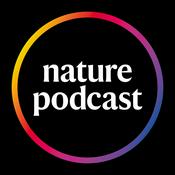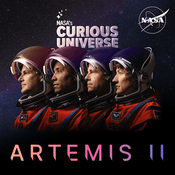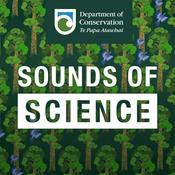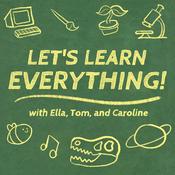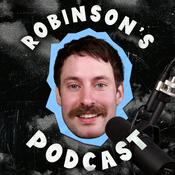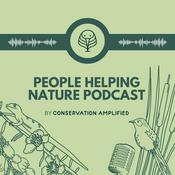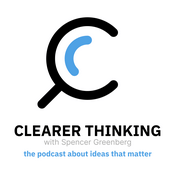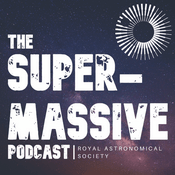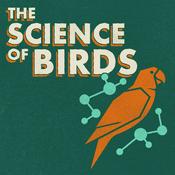568 episodes

Living Longer, Aging Smarter [Sponsored]
14/8/2025 | 8 mins.
Life expectancy has risen dramatically since 1900, reshaping how we understand aging. Scientists now view skin not just as a surface indicator, but as a biological marker of systemic health. In this podcast episode, Scientific American Custom Media explores how longevity science is offering new insights into vitality across the lifespan. Learn more about your ad choices. Visit megaphone.fm/adchoices

Condoms and Vasectomies Aren’t Enough—Is a Male Birth Control Pill Next?
13/8/2025 | 9 mins.
In this episode, host Rachel Feltman speaks with freelance science journalist Hannah Seo about a promising new development in male contraception: a hormone-free birth control pill that reversibly stops sperm production has just passed its first human safety trial. Seo explains how the drug works, what makes it different from hormone-based methods and where it stands in clinical development. Recommended reading: First Hormone-Free Male Birth Control Pill Shown Safe in Early Human Trial Male Birth Control Is in Development, but Barriers Still Stand in the Way “Safety and Pharmacokinetics of the Non-Hormonal Male Contraceptive YCT-529,” by Nadja Mannowetz et al., in Communications Medicine, Vol. 5, Article No. 279. Published online July 22, 2025 Email us at [email protected] if you have any questions, comments or ideas for stories we should cover! Discover something new every day: subscribe to Scientific American and sign up for our daily newsletter. Science Quickly is produced by Rachel Feltman, Fonda Mwangi, Kelso Harper and Jeff DelViscio. This episode was edited by Alex Sugiura. Shayna Posses and Aaron Shattuck fact-check the show. The theme music was composed by Dominic Smith. Learn more about your ad choices. Visit megaphone.fm/adchoices

Cosmic Discoveries Soar as Earthly Health Decisions Stir Alarm
11/8/2025 | 9 mins.
Rogue planets drifting through space might be forming their own planetary systems. NASA’s Europa Clipper mission has completed a key radar test ahead of its journey to study Jupiter’s icy moon. Plus, a major shift in U.S. health research funding occurs as Secretary of Health and Human Services Robert F. Kennedy, Jr., cancels nearly $500 million in funding for mRNA vaccine development. E-mail us at [email protected] if you have any questions, comments or ideas for stories we should cover! Discover something new everyday: subscribe to Scientific American and sign up for our daily newsletter. Science Quickly is produced by Rachel Feltman, Fonda Mwangi, Kelso Harper and Jeff DelViscio. This episode was edited by Alex Sugiura. Shayna Posses and Aaron Shattuck fact-check our show. Our theme music was composed by Dominic Smith. Learn more about your ad choices. Visit megaphone.fm/adchoices

Climate Science Gets a Seat in Congress with Eric Sorensen
08/8/2025 | 17 mins.
Representative Eric Sorensen of Illinois brings his background as a meteorologist to the halls of Congress, advocating for science-based policy amid intensifying climate threats. In this episode, he shares how personal experiences with extreme weather shaped his career and why protecting agencies like the National Weather Service is more urgent than ever. Sorensen also discusses the political challenges of defending climate science and makes a compelling case for why more scientists should enter public office. Recommended reading: Higher Bills, Hotter Planet: What Trump’s Megabill Means for You Texas Failed to Spend Millions in Federal Aid for Flood Protection Flood Forecasts Could Worsen as Trump’s NWS Cuts Take Hold E-mail us at [email protected] if you have any questions, comments or ideas for stories we should cover! Discover something new everyday: subscribe to Scientific American and sign up for our daily newsletter. Science Quickly is produced by Rachel Feltman, Fonda Mwangi, Kelso Harper and Jeff DelViscio. This episode was edited by Alex Sugiura. Shayna Posses and Aaron Shattuck fact-checked ourthe show. The theme music was composed by Dominic Smith. Learn more about your ad choices. Visit megaphone.fm/adchoices

Former NASA Leaders Are Sounding the Alarm on Budget Cuts
06/8/2025 | 16 mins.
The White House has proposed sharp cuts to NASA’s science budget, potentially reducing it to historic lows not seen since the early Apollo era. Beyond space exploration, NASA’s work influences daily life—from accurate weather forecasting to essential climate data for agriculture. Concerned by the effects of these cuts, all living former NASA science chiefs have united in warning of dire consequences for U.S. leadership in science. In this episode, Scientific American senior editor Lee Billings speaks with host Rachel Feltman to discuss why this moment feels especially urgent and what one former NASA science chief thinks about it. Recommended reading: White House Budget Plan Would Devastate U.S. Space Science U.S. Secretary of the Interior: Satellites Will Help Us Fight Climate Change The Trump-Musk Fight Could Have Huge Consequences for U.S. Space Programs Email us at [email protected] if you have any questions, comments or ideas for stories we should cover! Discover something new everyday: subscribe to Scientific American and sign up for our daily newsletter. Science Quickly is produced by Rachel Feltman, Fonda Mwangi, Kelso Harper and Jeff DelViscio. This episode was edited by Alex Sugiura. Shayna Posses and Aaron Shattuck fact-check the show. The theme music was composed by Dominic Smith. Learn more about your ad choices. Visit megaphone.fm/adchoices
More Science podcasts
Trending Science podcasts
About Science Talk
Listen to Science Talk, Discovery and many other podcasts from around the world with the radio.net app
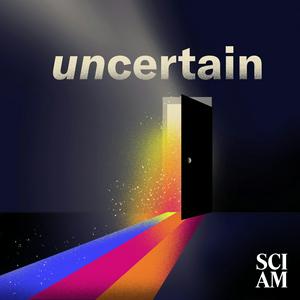
Get the free radio.net app
- Stations and podcasts to bookmark
- Stream via Wi-Fi or Bluetooth
- Supports Carplay & Android Auto
- Many other app features
Get the free radio.net app
- Stations and podcasts to bookmark
- Stream via Wi-Fi or Bluetooth
- Supports Carplay & Android Auto
- Many other app features


Science Talk
download the app,
start listening.










